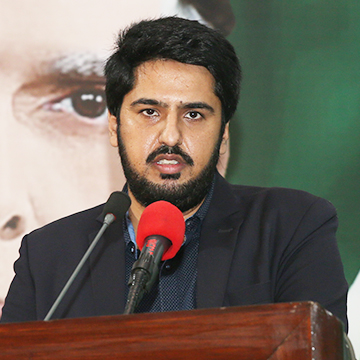
|
|
Mr. Muhammad Abdullah
Lecturer, Dept. of Social Sciences, Iqra University, Islamabad
Junagadh’s Cessation from The Mughal Empire: A Historical Analysis
|
| |
|
When Junagadh was under the control of Gujarat Sultanate it was governed by thanedar at that time, he was directly appointed by Ahmadabad. Tatar Khan was the first thanedar. Soon after the death of Aurangzeb Alamgir (r. 1657-1707), the disintegration of the Mughal Empire started gradually which resulted in the independence of petty states. Babai Nawab of Junagadh State followed the suit. Babai became involved in a struggle with the Gaekwad Dynasty of the Maratha Empire over control of Gujarat. Sher Khan Babi declared independence from the Mughal Governor of Gujarat province and founded the State of Junagadh in 1730. In the era of the 1850s, East India Company started diplomatic relations with different Kingdoms of India. British controlled the foreign affairs of the states of India and Junagadh was also one of them.
|
|
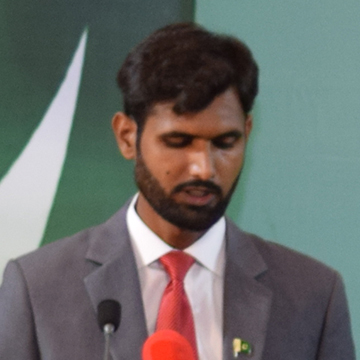
|
|
Mr. Muhammad Rashid
Bahauddin Zakariya University, Multan
Administration of Junagadh State under the Babi Dynasty
|
| |
|
Junagadh remained under the rule of the Babi Dynasty from 1730 to 1947 until the occupation of India. In the beginning, the state was administered according to the Mansabdari system of Mughals. In political and administrative reforms, Nawab Hamid Khanji-I did an agreement with Colonel Walker in 1807 when British forces entered the Kathiawar peninsula to assert their dominance over the region. It was called Walker Settlement which brought peace to Kathiawar. In economic reforms, Nawab Mahabat Khanji-I created Revenue Department to collect revenue from import-export activities. In 1895, Nawab Rasul Khanji created Alienation Department to fix taxes on landlords. He created Sir Rasool Khanji Company to promote the industry in the State. Nawab Mahabat Khanji-III established multiple factories which processed cotton, wood, flour, grains, and oil. He focused on the development of the Verawal port and agriculture sector to strengthen the economy. In 1886, Junagadh State Railway System was created. In 1929, Nawab Mahabat Khanji-III established an electric powerhouse and a dam in the state. He also created Kishod airport, telephone service, and bus service in the state. Junagadh state administration and development was very advance as compare to the other states in Indian Sub-continent.
|
|
|
|
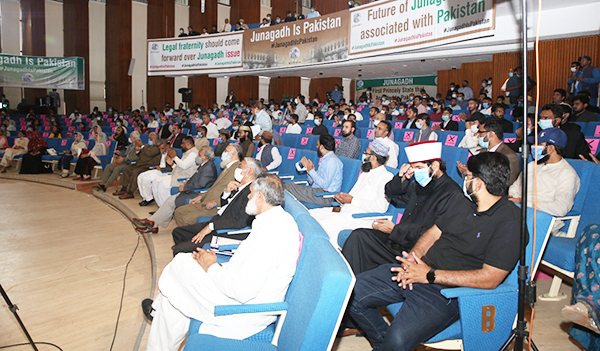
|
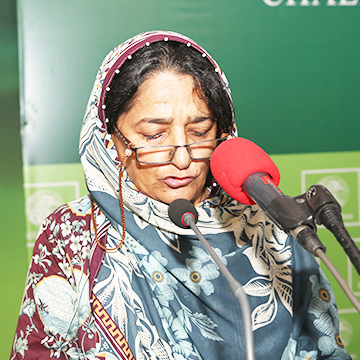
|
|
Dr. Farah Gul Baqai
Senior Research Fellow, National Institute of Historical and Cultural Research, Quaid-i-Azam University, Islamabad
Junagadh History and Accession to Pakistan 1947
|
| |
|
The study of Junagadh is an important academic pursuit, and it should be studied within the framework of time. At the time of partition of Indian Sub-continent, the Indian Independence Act was blatantly bulldozed by arbitrators. After the accession of Junagadh with Pakistan, Shamaldas Gandhi formed an illegitimate provisional government for Junagadh in Bombay on 25th September 1947. The provincial government moved its headquarter to Rajkot near Junagadh and started recruiting volunteers to organize raids on Junagadh. According to Francis Tucker the Author of While Memory Serves, the Junagadh was threatened by the Indian Union which disposed forces for its subjugation. Tucker narrates ‘[India] Its war ships lay off the coast under the pretext of ‘joint operation exercises’; its troops stood on the border of the state. The most important point to note was that chief arbitrator Mountbatten was on Indian side. Prime Minister Liaquat Ali Khan at length dwelt on the inconsistency of the Indian stand on Kashmir and Junagadh.
|
|
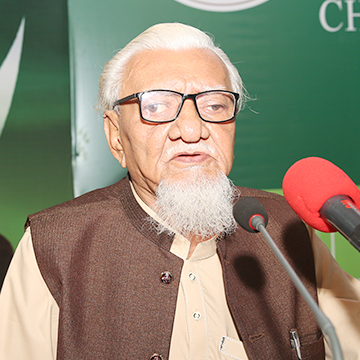
|
|
Mr. Bashir Muhammad Munshi
Renowned Writer & Journalist
Role of Dewan (Prime Minister) of Junagadh: A Historical Perspective
|
| |
|
The first Nawab of Babi Family Sher Khan Babi appointed Dilpat Raam as Dewan of Junagadh State. During the reign of 9 Nawabs of the Babi family in two centuries, there were 72 Dewans. The Dewan not only enjoys the status of special advisor in administrative affairs of the state but also handles all administrative responsibilities. The administrative affairs of the heads of all departments were approved with the signature of Dewan. Dewan was second in command after Nawab in all matters of the State. After 1862, the post of prime minister was introduced for Dewan i.e., minister Baha-ud-din and minister Khan Bahadur Saleh Hindi. The prime minister had the enormous administrative powers and all the state's responsibilities. On 30th May 1947, H.H Nawab Mahabat Khanji by issuing royal decree number 379 appointed Shah Nawaz Bhutto the prime minister of Junagadh who remained prime minister only for 162 days. On 9th November 1947, Junagadh was illegally occupied. At present, under the leadership of H.E Sultan Ahmed Ali, the descendent of Hadrat Sultan Bahoo and the current Dewan (Prime Minister) of Junagadh, the liberation movement of Junagadh has been rejuvenated.
|
|
|
|
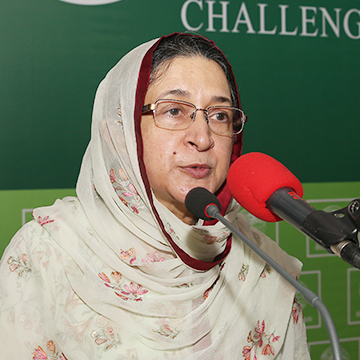
|
|
Prof. Dr. Aalia Sohail Khan
Former Vice Chancellor, Rawalpindi Women University, Rawalpindi
Sifting Facts from Fiction about Junagadh
|
| |
|
Since 1947, sizeable yet irresponsible analysis on Junagadh has emerged and numerous narratives have been written by intellectuals, academicians, military personals, journalists, and politicians from across the world. However, several distorted, exaggerated narratives were generated, propagated, and disseminated by India and Western media to defame and malign Pakistan, Quaid-i-Azam, and the Nawab of Junagadh. Conspiracies were hatched to deter the accession of Junagadh to Pakistan. Whereas, there was benign just governance of the Muslim rulers of Junagadh who ensured non-discrimination and equitable and peaceful co-existence of the Muslims, the Hindus, and all others. The good governance of Muslim rulers of Junagadh was deliberately ignored or downplayed to tarnish their noble and progressive deeds to justify the forcible accession of Junagarh to India. The Nawabs were criticized for their opulent style of living that prevented them from working for the well-being of their people. The observance of the humane Islamic code of conduct brought harmony, development, and prosperity into the state of Junagadh. As responsible citizens of Pakistan, it is our obligation to dispel the biased views and concocted myths surrounding the annexation of Junagadh. Great nations learn from their history to determine their future course of action.
|
|
|
Interactive Session
|
| |
|
|
| |
After the remarks by the speakers Interactive session was held and brief summary of the remarks is given below:
During the British rule in Indian Sub-continent, Nawabs of various states were awarded different ranks and titles from the Britishers. Nawab of Junagadh was also awarded the title of Night of the Grand Commander of the order of India in 1931 and 1946.
Shahnawaz Bhutto became Dewan of Junagadh State according to the Shahi Farman act 359 and remained Dewan of Junagadh for almost 160 to 162 days after which partition of the sub-continent took place. He tried his best for the accession of Junagadh to Pakistan. Before this, Sir Zafar Ullah khan also visited Junagadh and talked about the accession of Junagadh with Pakistan.
Till the 1960s, the Map of Junagadh used to be part of Pakistan’s Map. In the mid-70s, this map disappeared from the inset. The political situation of Pakistan at the time of 1971, could be the reason for its disappearance.
|
|
|
|
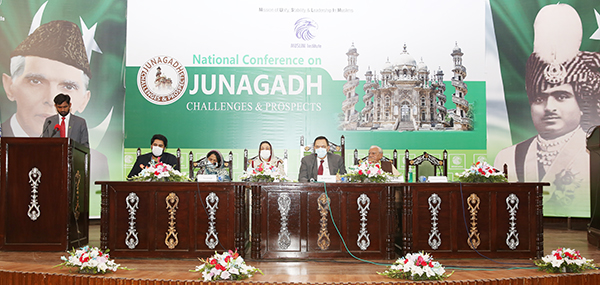
|
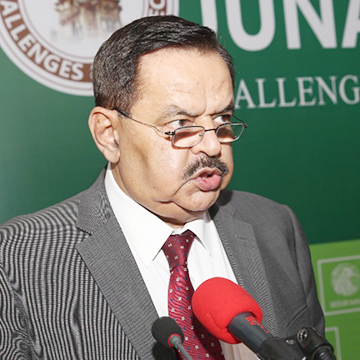
|
|
Maj. Gen. (R) Syed Khalid Amir Jaffery (Hilal e Imtiaz Military)
President, Centre for Global & Strategic Studies, Islamabad
Chair of the Session
|
| |
|
H.H Nawab Muhammad Jahangir Khanji and H.E Dewan Sahibzada Sultan Ahmed Ali deserve great appreciation for arranging this conference on such an issue of national importance. Credit also goes to the government for having brought this issue to the forefront in August 2020. If we look into the map of India in 1947 by comparing it with today’s Indian map, we saw an enormous illegal expansion. Start from
|
|
|
Kashmir, Hyderabad, Junagadh, Hassam, Tri Pura, and so on, they had gradually expanded which means they have taken over the areas which did not belong to them. This was the psyche of Nehru because all these things happened in Nehru style and Modi is doing it differently and aggressively. Nehru was diplomatic, but both are followed the same ideology. Modi is re-elected with a 70 percent margin by using the whole theme of anti-Pakistan. There are 200 different cultures in India and every culture has the right to independence. Nawab of Junagadh and Dewan of Junagadh is presenting an unprecedented struggle for the cause which will definitely bear fruit one day.
|
|
|
|
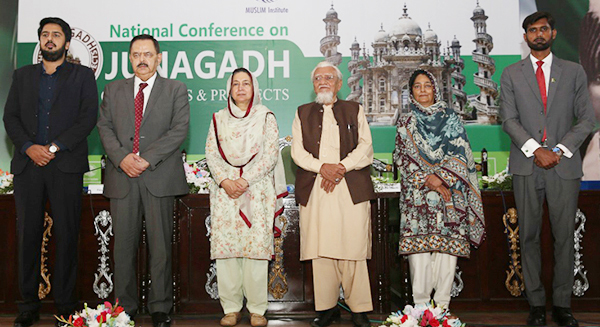
|
|
© 2021. All rights reserved.
|
|
|
|
|
|
|
| | | |